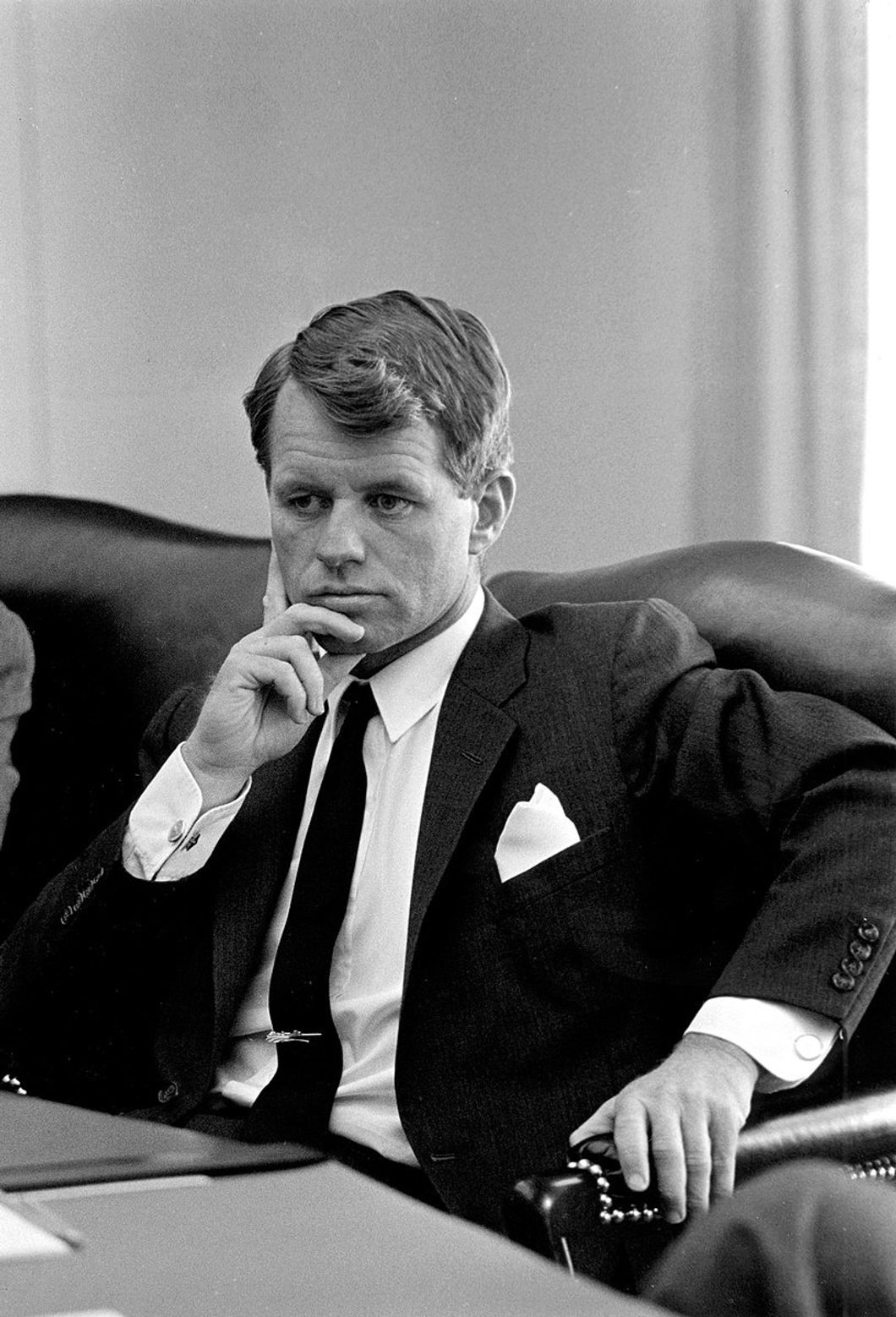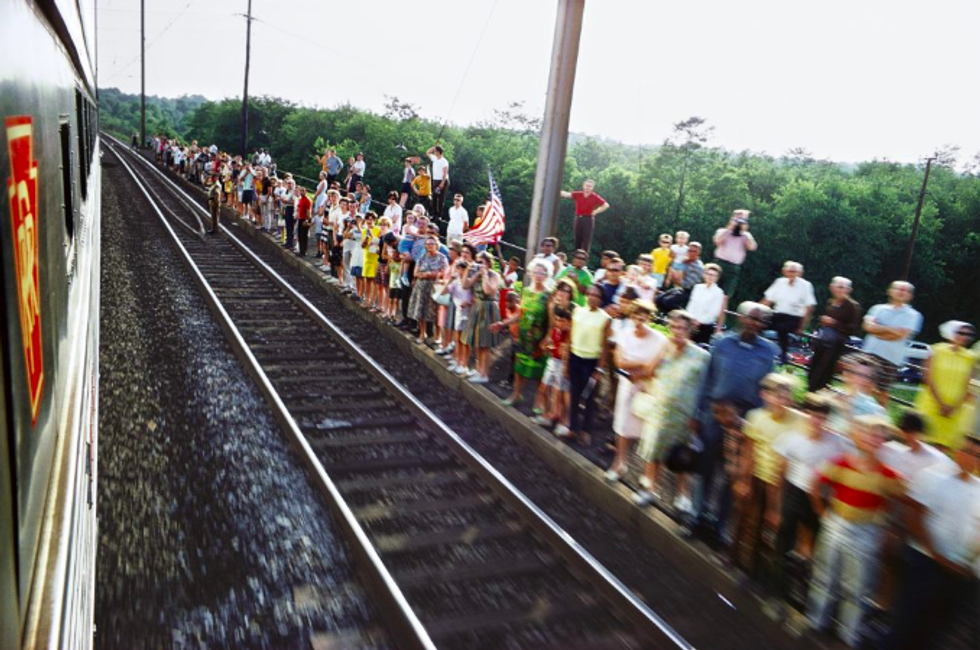On a hot August night in 1964, Robert F. Kennedy took the stage at the Democratic National Convention in Atlantic City, New Jersey. His role was simple—to introduce a memorial film, a tribute to his late brother, who had been assassinated less than a year earlier. What should have been a short, sympathetic speech became one of the most moving scenes in political history.
As he reached the podium, the crowd erupted into applause. He started to speak—they would not let him. Every man and woman in the room rose to their feet. The pandemonium grew louder. By the four-minute mark, any attempt to silence the crowd had failed. By eight minutes, there was nothing Kennedy could do except wait and smile graciously.
It went on for 22 minutes.
Whether the applause had been for Kennedy himself or his resemblance to his late brother, somewhere in those 22 minutes Bobby Kennedy became a political star.
If you venture down the annals of our modern democratic party you will find a little gallery of people who very nearly, in some progressive heaven, graced the Oval Office.
If you're a fan of rural socialism you probably already know about Henry Wallace, who was narrowly replaced by Harry Truman as Roosevelt's fourth term VP. In 2000, Al Gore promised an ostensive role in combating climate change, which was squandered by the Bush administration.
Yet out of every failed campaign, none carried the potential to unite a fractured nation like that of Robert F. Kennedy. His assassination resulted in a despondency that, in my opinion, we've never been able to shake.
First, allow me to be frank. Bobby Kennedy isn't a shining image of pure-hearted liberalism. In fact, he did some pretty shady stuff as Attorney General. He sanctioned FBI surveillance of Dr. Martin Luther King and insinuated that the 1961 Freedom Riders were "only causing trouble".
But where Kennedy transcended his political peers was his ability to listen, and in listening, to change.
In 1963, Kennedy (then acting as Attorney General) invited novelist James Baldwin and a host of cultural leaders to meet in one of his family's properties in NYC. The black delegation saw this as their opportunity to lay into Kennedy about the urgency of the civil rights movement. The Attorney General, who did not understand the extent of racism in the U.S., became frustrated, specifically with one guest's insistence that he would never serve his country overseas. The meeting soon turned antagonistic, and Kennedy opened FBI files on everyone who attended.
Though the meeting itself was a failure, it deeply impacted the Attorney General, who instead of proceeding in bitterness, became increasingly concerned with issues of racial inequality. Out of all of JFK's white house advisors, he was the only one who actively encouraged the president to give his landmark Civil Rights Address in 1964. On the issue of military service, he would later ask the Senate Judiciary Committee "How long can we say, 'When war comes you will be an American citizen, but in the meantime, you're a citizen of Mississippi—and we can't help you'?"
By the time he announced his candidacy for president, he had proved through his work with Caesar Chávez and urban development in the poorest neighborhoods in the state of New York that he was willing to fight tirelessly for those who could not fight for themselves. His most ardent supporters were the disenfranchised, people who believed he was their best chance at being heard.
Their hope soon turned to despair. Bobby Kennedy was shot and killed on June 5, 1968, in Los Angeles California.
Several days later, A train carrying his casket traveled to Arlington national cemetery. Over a million people lined up along the tracks to say goodbye, not just to Senator Kennedy, but to the movement he had created towards a unified nation.
Though the challenges we face in this generation are different, the kind of leadership we need is inseparable from the kind we nearly had in 1968. Bobby Kennedy was a lightning rod in a moment of chaos. A war overseas, riots in the streets, crippling poverty in southern America. He addressed these issues without shifting blame or pretending they didn't exist, continually insisting it was up to every young person to create a "ripple of hope" by standing up against the injustices of their time.
Look, I'd love to believe that in the advent of social media, with so many voices being heard, the desire to listen to one another has become the backbone of our political discourse (it no longer takes a visit from a New York senator to get the government's attention). Yet I feel that with outlets like twitter dictating the social narrative, it's becoming much easier to fall away from discussion and into dissension, foregoing aisle, class, race crossing conversation and becoming totally unshakeable in our moral rectitude.
Today, Americans need someone (preferably a woman, person of color, or both), who can be their calm within the storm.
If this "someone" has even an iota of what Bobby Kennedy had, they stand a chance at beating you-know-who in 2020, or at the very least creating that "ripple of hope" we so desperately need.


















